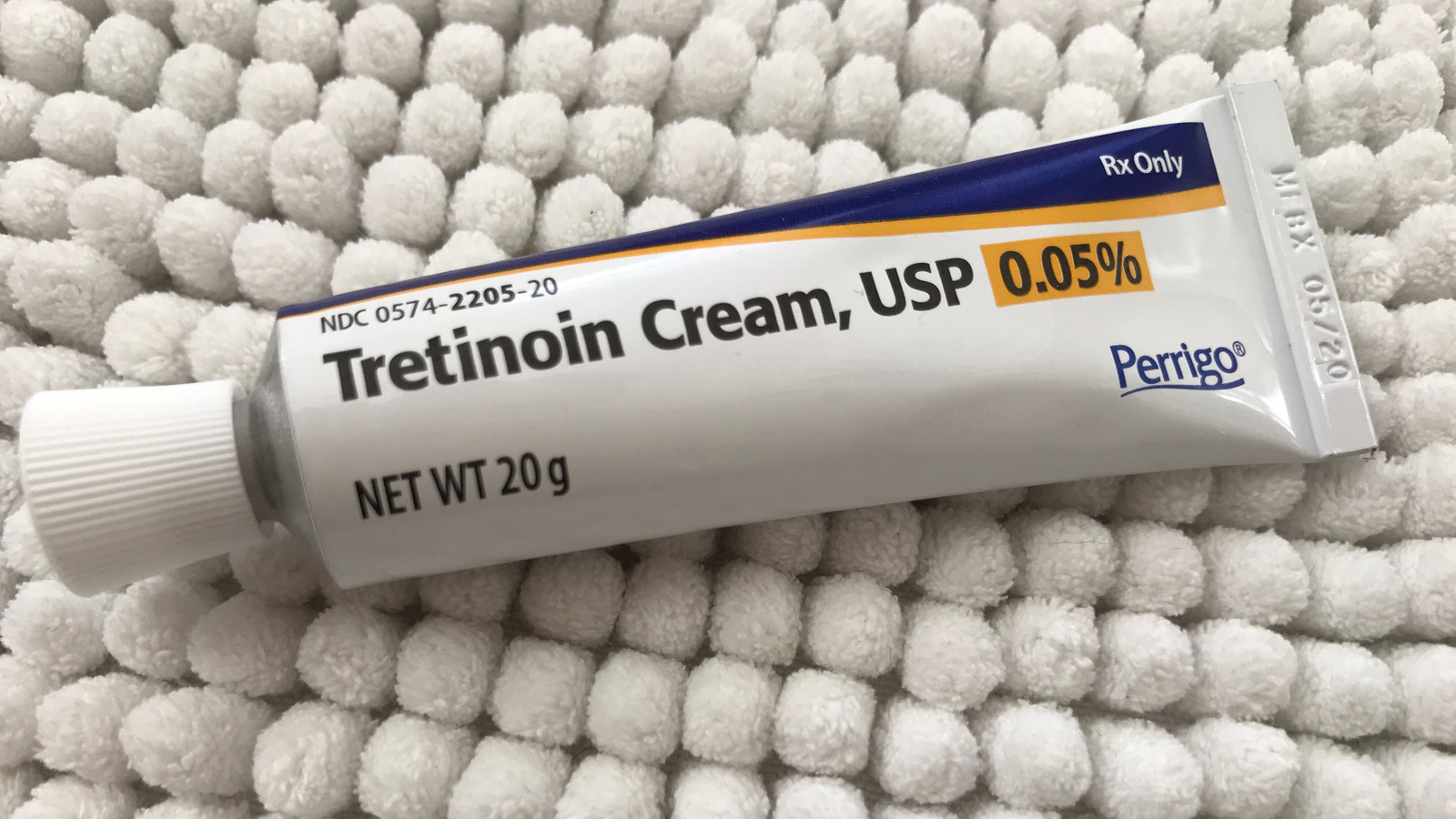Tretinoin is a powerful prescription-only active ingredient that works wonders on your skin. However, you must exercise caution & use only the recommended amount to avoid irritation & skin reactions.
It has been shown in clinical studies to reduce the appearance of fine facial lines & yellowish pigmentation, decrease mottled hyperpigmentation caused by acne, & improve rough skin texture.
Acne
While most people associate retinoids with anti-aging, they can also help treat acne. Tretinoin can reduce acne scars by promoting collagen production, and it can help minimize fine lines and wrinkles by boosting the skin’s natural exfoliation process.1
It works by speeding up the epidermal turnover process, which makes dead skin cells fall off more quickly and leave less time for pores to become clogged. It also helps prevent the formation of excess sebum, which can lead to acne breakouts.
When applying tretinoin, make sure you wash your face with a gentle cleanser and pat it dry before you apply the cream or gel. It’s best to start with a low dose—around 0.025%—and work up to using it every day as tolerated. You should also avoid other topical treatments that might irritate your skin, like benzoyl peroxide or products with citrus, sulfur or resorcinol, while you’re using it. If you’re suffering from rosacea, be especially careful when using it, as it may exacerbate the condition.
Melasma
Melasma is a common condition of hyperpigmentation that causes dark spots on the skin. It usually affects women and is caused by hormonal changes and sun exposure. Tretinoin cream can help reduce melasma by accelerating the production of new skin cells and by increasing cell turnover. It also helps to prevent the clogging of pores, which can lead to acne.
Other treatments for melasma include topical depigmenting agents such as hydroquinone (HQ) either over-the-counter (2%) or prescription (4%) strength. This medication decreases the appearance of pigment by inhibiting the action of tyrosinase, an enzyme that produces melanin in the skin. Other depigmenting treatments for melasma include azelaic acid (20%), tranexamic acid, and vitamin C.
While you’re on a tretinoin regimen, moisturize your skin daily to avoid dryness and peeling. Avoid using harsh soaps, hair coloring chemicals, or astringents and facial scrubs that can irritate the skin. Also, wear a broad spectrum sunscreen with SPF 30 or higher daily, even on cloudy days.
Wrinkles
As we age, fine lines and wrinkles appear as collagen production slows down and skin becomes thinner, less elastic. Tretinoin is scientifically proven to treat these signs of aging by speeding up skin cell turnover and increasing collagen.
It also helps fade dark spots and unclog pores. Be sure to talk to your dermatologist about the best tretinoin cream for you, and what other skin products to use with it. Avoid products containing benzoyl peroxide, salicylic acid or sulfur unless approved by your doctor, as these can cause severe irritation with tretinoin.
Always apply tretinoin after cleansing and toning with a gentle cleanser and moisturizer. Apply it every other night to start, then increase frequency as your skin adjusts. Be sure to wear sunscreen everyday, as tretinoin makes your skin more sensitive to sunlight. Also, don’t smoke or drink alcohol, as these can aggravate your symptoms. Schedule a consultation with Columbia Skin Clinic today to get started.
Sun damage
While tretinoin cannot reverse the effects of long-term sun exposure, it can help reduce dark spots, smooth wrinkles and even out skin tone. It can also reduce rough, scaly areas that are sometimes caused by sun damage.
The sun’s rays can invisibly damage skin cells. These changes can affect fibroblast cells that produce collagen and elastic tissue, basal cells that form the lower layer of the skin, and melanocytes that create pigment. Over time, this can result in fine facial lines, wrinkles, mottled hyperpigmentation and sun damage.
Patients on tretinoin should avoid direct sunlight and use sunscreens with a high SPF every day (even on cloudy days) to prevent sunburn. They should also wear hats and protective clothing when outdoors. In addition, they should avoid using other products that may irritate the skin or dry it out, such as harsh soaps, hair dyes, astringents and spices. They should also stay out of tanning beds. (DailyMed)

